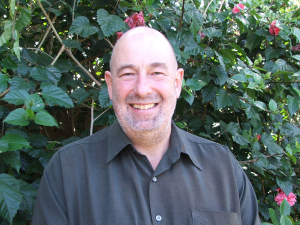Horticulture NZ Celebrates Record Year for Kiwifruit and Apples
Reflecting on the past year, Horticulture New Zealand chief executive Kate Scott says there has been a lot to celebrate.
 Mike Chapman wants proposed RMA amendments expanded to remove unnecessary regulation that is stifling growth of the horticulture sector.
Mike Chapman wants proposed RMA amendments expanded to remove unnecessary regulation that is stifling growth of the horticulture sector.
HortNZ chief executive Mike Chapman says a complete overhaul of the Resource Management Act is urgently needed for NZ to recover quickly from the effects of Covid-19.
Chapman says the RMA needs to be streamlined, not for just a small number of major projects, but for all projects. He wants the scope of the RMA amendment expanded. He says the opportunity to remove unnecessary regulation is a key area in which NZ needs to take advantage because unnecessary regulation stifles growth.
“For our Covid recovery, we need to enable those industries that can grow, to grow, and grow rapidly to make up for those sectors that are in Covid decline,” Chapman told Hort News.
“First, we need to look at the sectors that will lead the financial Covid recovery and then look at how we can enable businesses in those sectors to continue producing and expanding. We need to find the RMA blockages and remove them, and if the blockages cannot be removed, we need to reduce their impact. We need to achieve this through a holistic lens that considers not only the environment but the need to drive economic success and New Zealanders’ wellbeing.”
Chapman says commercial vegetable growing is an active example. He says the country has never needed these vegetables more than we do today in the post Covid environment. He says closing down farmers markets and independent fruit and vegetable retailers during lockdown resulted in 20% of New Zealanders not having access to healthy food when they most needed it.
Chapman believes it’s important that everyone in the country has access to fresh fruit and vegetables. He says, to do that, we need to empower and enable our growers to grow that food.
“Our vegetable growers have endured static margins, increased production costs and exponentially increased compliance costs,” he adds. “Most of the compliance cost increases have come from RMA rules and regulations that have often been imposed based on pastoral farming, with no recognition that growing vegetables is very different to growing animals.
“One size does not fit all. The other fact that has been forgotten is vegetable growing has no meaningful impact on national water quality and contributes less than 1% to greenhouse gases,” Chapman adds. “And where there is an impact on water quality, it is very localised, and that impact is being progressively reduced by the growers.”
He points out that all the vegetables in NZ are grown on less than 50,000 hectares. Dairy farms, by way of comparison, use more than 2 million hectares of land, and beef and lamb more than 8 million hectares. Simple logic, he notes, dictates just how minimal the environmental impact of vegetables is.
Fonterra’s impending exit from the Australian dairy industry is a major event but the story doesn’t change too much for farmers.
Expect greater collaboration between Massey University’s school of Agriculture and Environment and Ireland’s leading agriculture university, the University College of Dublin (UCD), in the future.
A partnership between Torere Macadamias Ltd and the Riddet Institute aims to unlock value from macadamia nuts while growing the next generation of Māori agribusiness researchers.
A new partnership between Dairy Women’s Network (DWN) and NZAgbiz aims to make evidence-based calf rearing practices accessible to all farm teams.
Despite some trying circumstances recently, the cherry season looks set to emerge on top of things.
Changed logos on shirts otherwise it will be business as usual when Fonterra’s consumer and related businesses are expected to change hands next month.